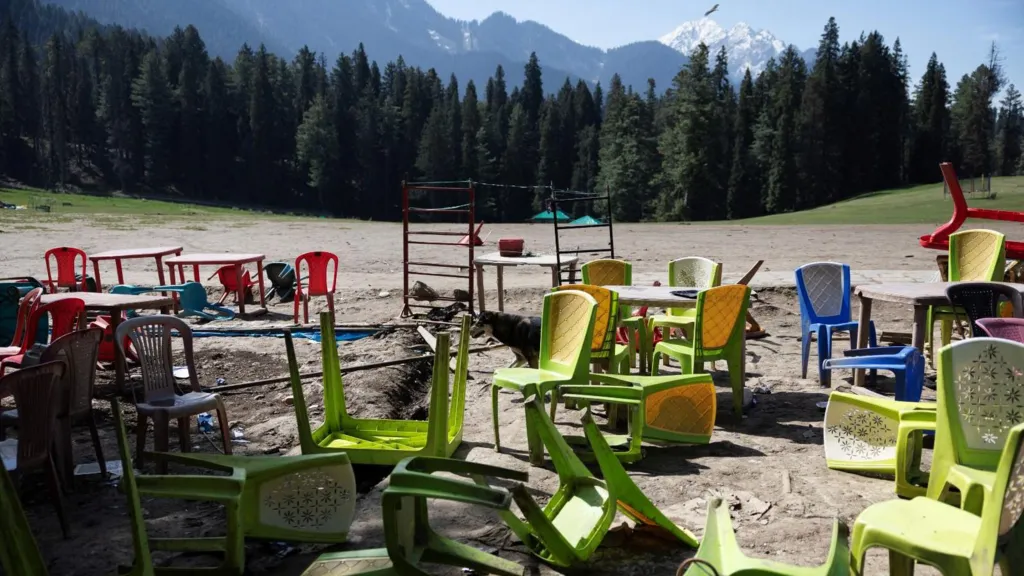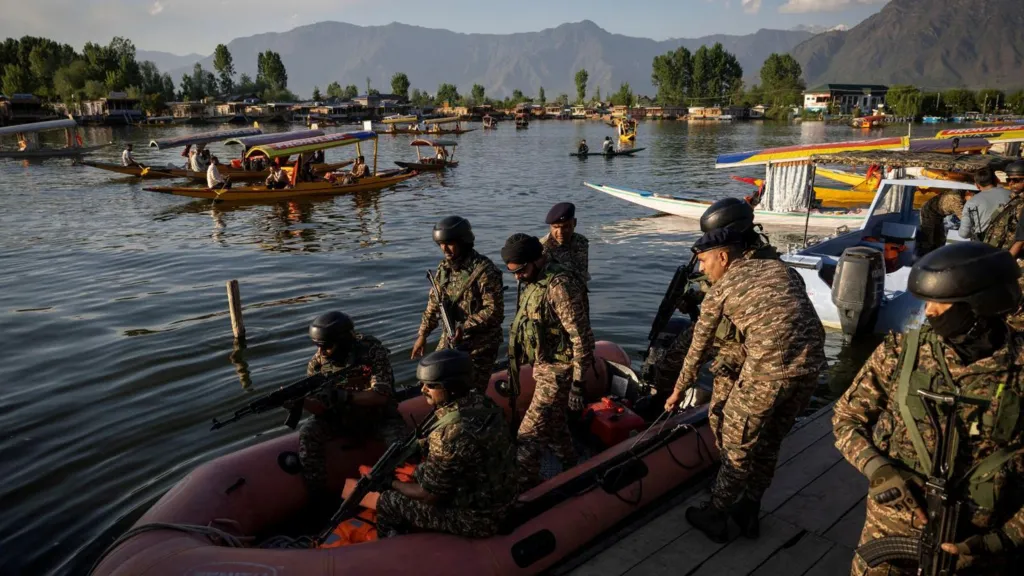Shabir Ahmad Dar, a resident of Indian-administered Kashmir, has been engaged in the sale of pashmina shawls for over two decades. These delicately embroidered lightweight scarves are highly sought after by his clientele in Mussoorie, a hill station located in the northern state of Uttarakhand, where he conducts his business. For his customers, these shawls symbolize luxury, while for Dar, they represent a connection to home, embodying traditional patterns steeped in history and reflecting his Kashmiri heritage. However, this very identity has recently become a source of distress. On Sunday, Dar and another vendor were subjected to public harassment and assault by members of a Hindu nationalist group, reportedly angered by the recent killing of 26 individuals at a well-known tourist destination in Kashmir. India has attributed the attack to Pakistan, a claim that Islamabad has denied. A video capturing the incident depicts the assailants violently attacking Dar and his companion while vandalizing their stall on a bustling street. ‘They held us responsible for the attack, demanding that we leave town and never return,’ Dar recounted. He lamented that his merchandise, valued at thousands of dollars, remains abandoned. ‘Yet, we are too frightened to return.’ In response to the public outcry following the assault, police apprehended the three assailants on Wednesday, but they were released a few hours later after being fined and instructed to ‘apologize’ to Dar and his associate. By that time, however, Dar had already departed, along with many other Kashmiri shawl vendors, who, after residing in Mussoorie for many years, now feel unsafe in the area.
Thank you for reading this post, don't forget to subscribe!
Image Credits: BBC News
Numerous survivors of the Pahalgam attack, which is the most lethal assault on civilians in recent years, reported that the militants deliberately targeted Hindu men, leading to widespread outrage and sorrow across India. Politicians from various parties have united in calling for stringent measures. Subsequently, there have been numerous accounts of Kashmiri vendors and students in Indian cities experiencing harassment, defamation, and threats from right-wing factions, as well as from their peers, customers, and neighbors. Videos depicting students being expelled from campuses and assaulted in public have proliferated online. On Thursday, a survivor, whose husband, a naval officer, was killed in the militant assault, urged the public not to retaliate against Muslims and Kashmiris, stating, ‘We desire peace and only peace.’ However, safety concerns have compelled many Kashmiris, like Dar, to return to their homeland. Ummat Shabir, a nursing student at a university in Punjab, recounted that some women in her community labeled her a ‘terrorist who should be expelled’ just last week. ‘On the same day, my classmate was ejected from a taxi by the driver upon discovering she was Kashmiri,’ she recounted. ‘It took us three days to make our way back to Kashmir, but we had no choice; we had to return.’ While Ms. Shabir is now back in her hometown, many others find that even their homes no longer feel secure. As the investigation into the assailants of last week’s attack progresses, security forces in Kashmir have apprehended thousands, closed over 50 tourist sites, deployed additional army and paramilitary personnel, and demolished several residences belonging to families of suspected militants accused of having ‘terrorist connections.’ This crackdown has instilled fear and anxiety among civilians, many of whom perceive these actions as a form of ‘collective punishment.’ Without addressing the demolitions, Jammu and Kashmir Chief Minister Omar Abdullah stated that those responsible must face severe consequences, ‘but innocent individuals should not become collateral damage.’

Image Credits: BBC News
Mirza Waheed, a novelist from Kashmir, asserts that Kashmiris are particularly susceptible to scrutiny as they are viewed through a distinct perspective, being part of the Muslim demographic in India. He laments that many will endure the shame and degradation, remain subdued for a period, and hope for the situation to improve, as they have lives to lead. No one understands this plight better than Mohammad Shafi Dar, a laborer in Shopian, Kashmir, whose home was destroyed by security forces just last week. Five days later, he is still attempting to recover from the devastation. ‘We have lost everything,’ Dar expressed, as he now resides outdoors with his wife and three daughters, along with his son. ‘We lack even the basic utensils to prepare meals.’ He reveals that his family is unaware of the whereabouts of their other son, aged 20, questioning whether he has joined militant groups or if he is alive or deceased. His parents recount that the college student left home last October and has not been heard from since. ‘Yet, we are suffering for his supposed offenses. Why?’



